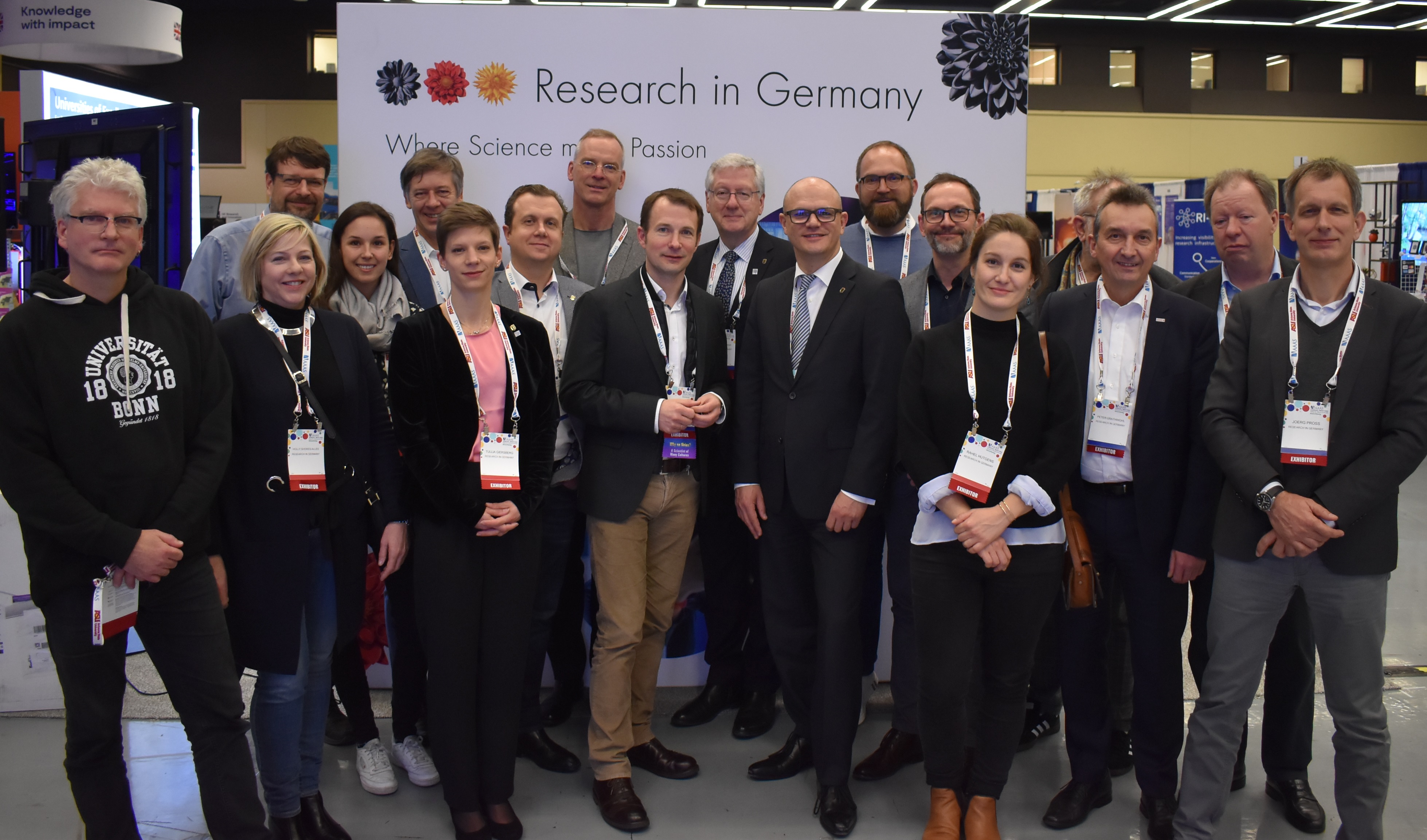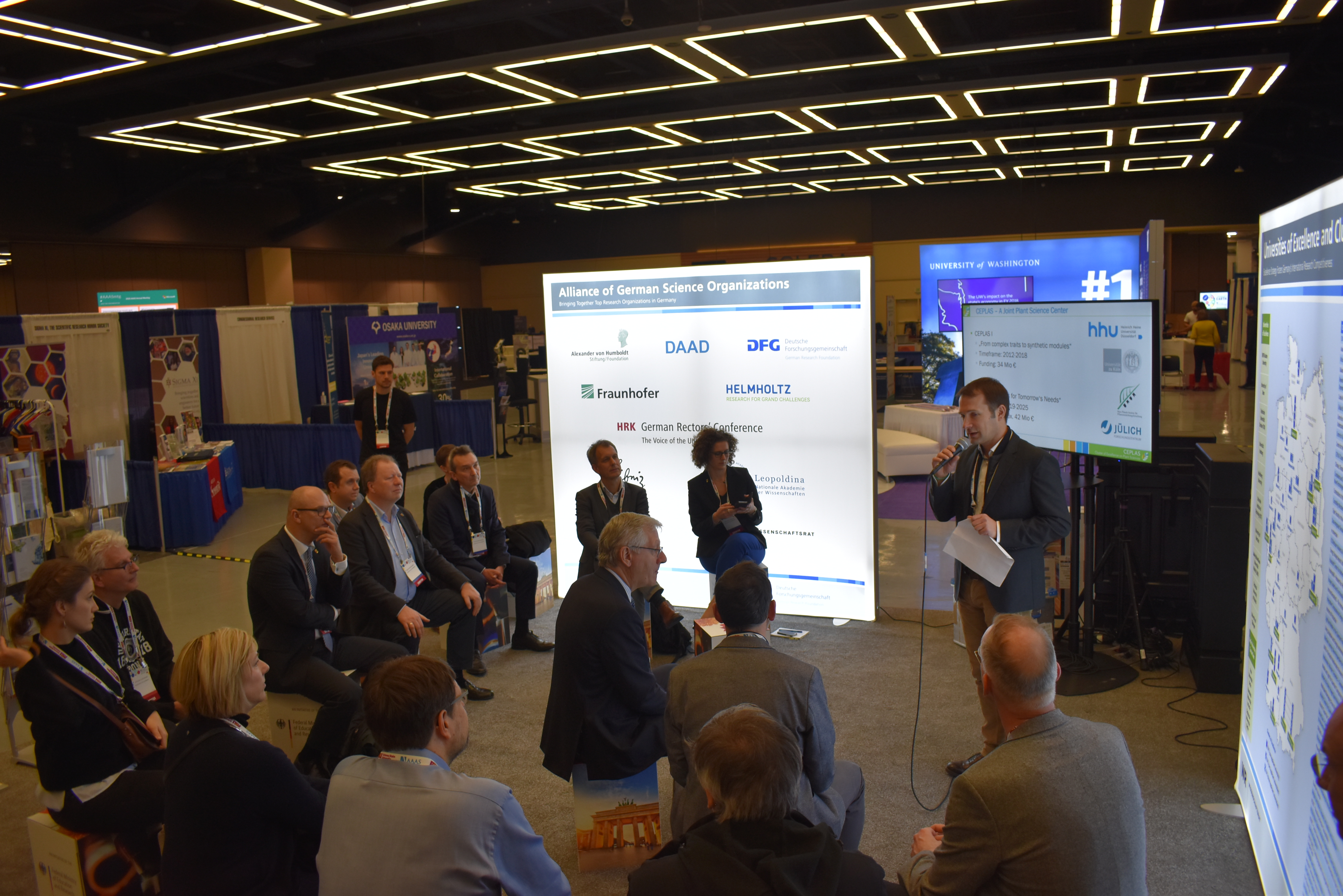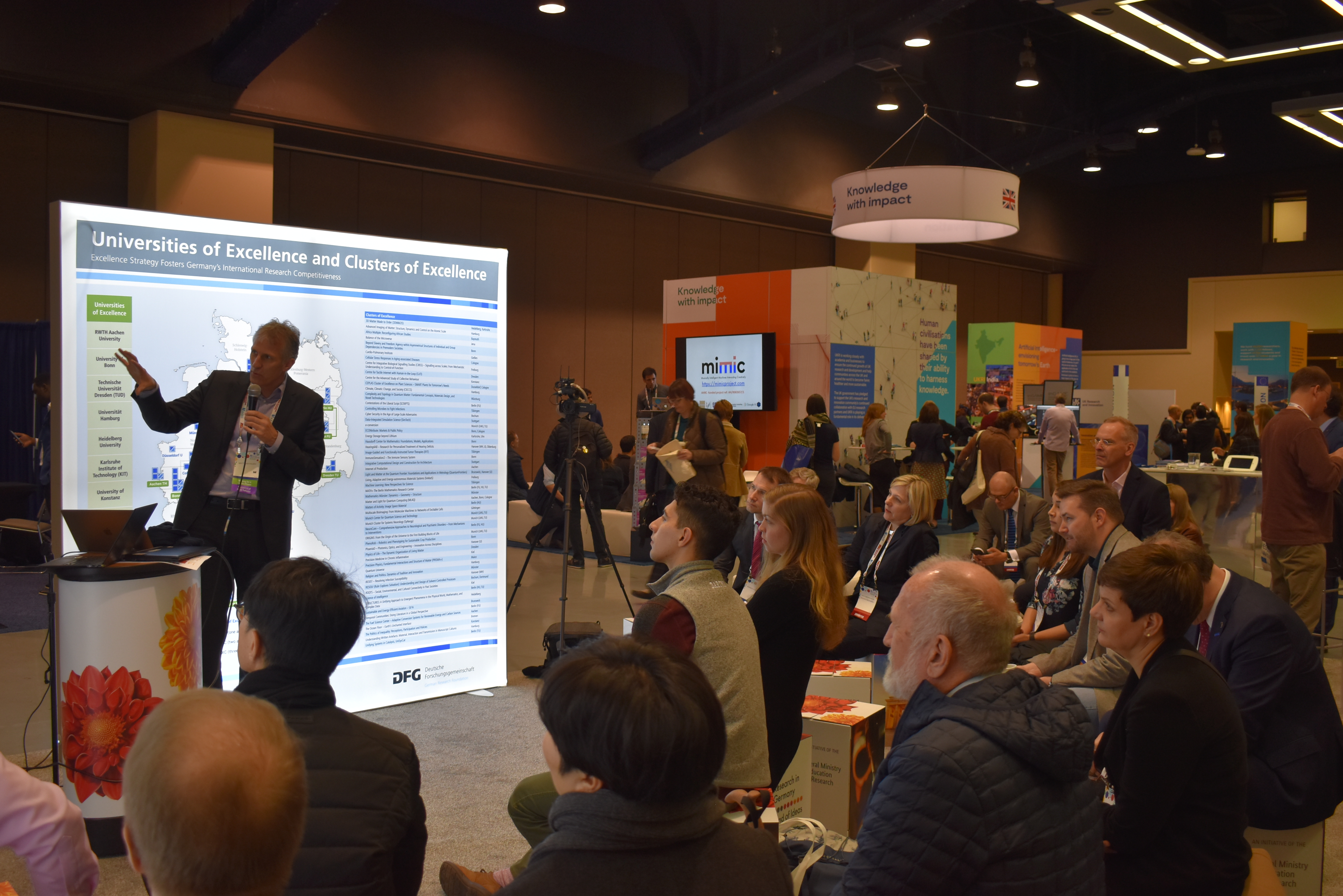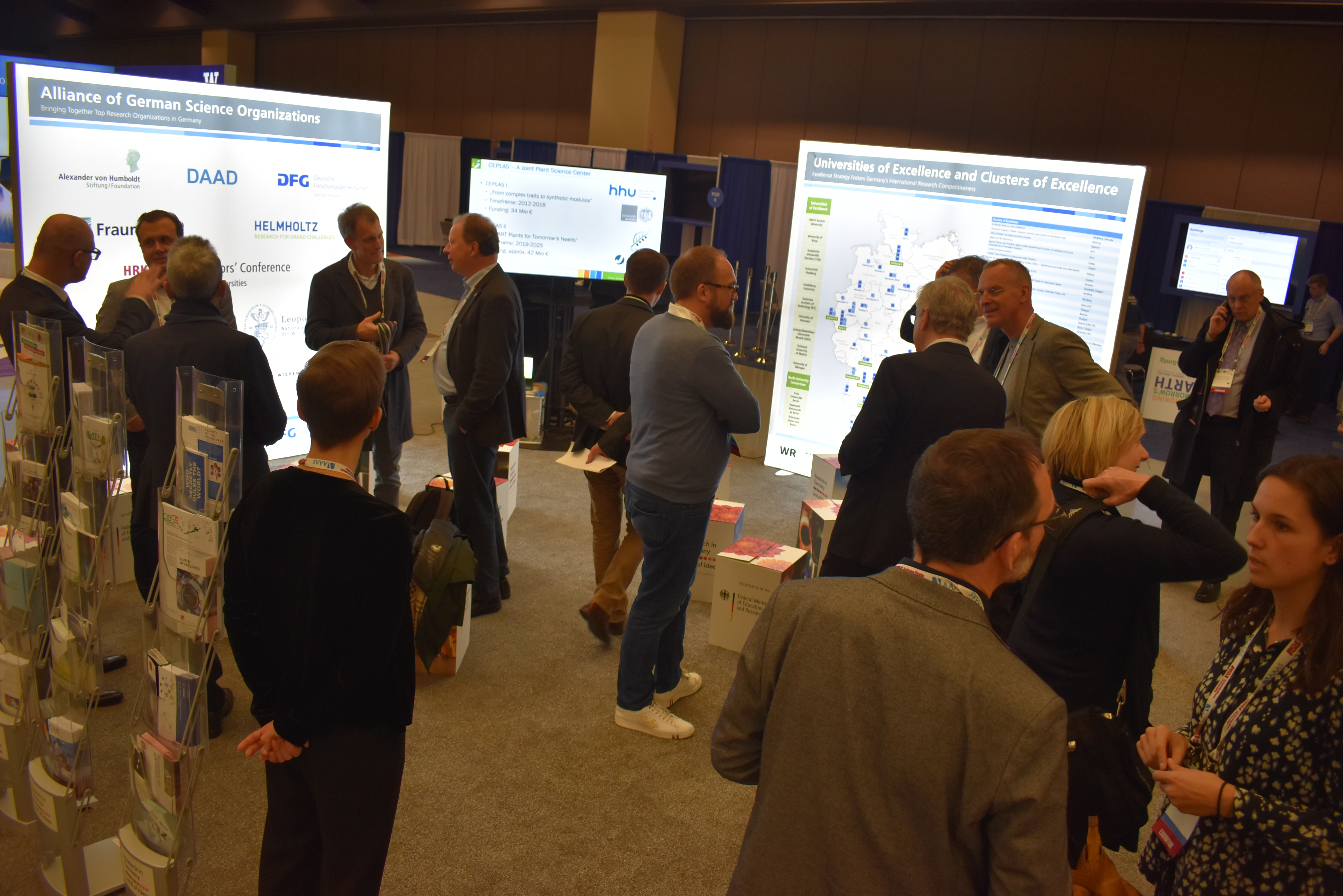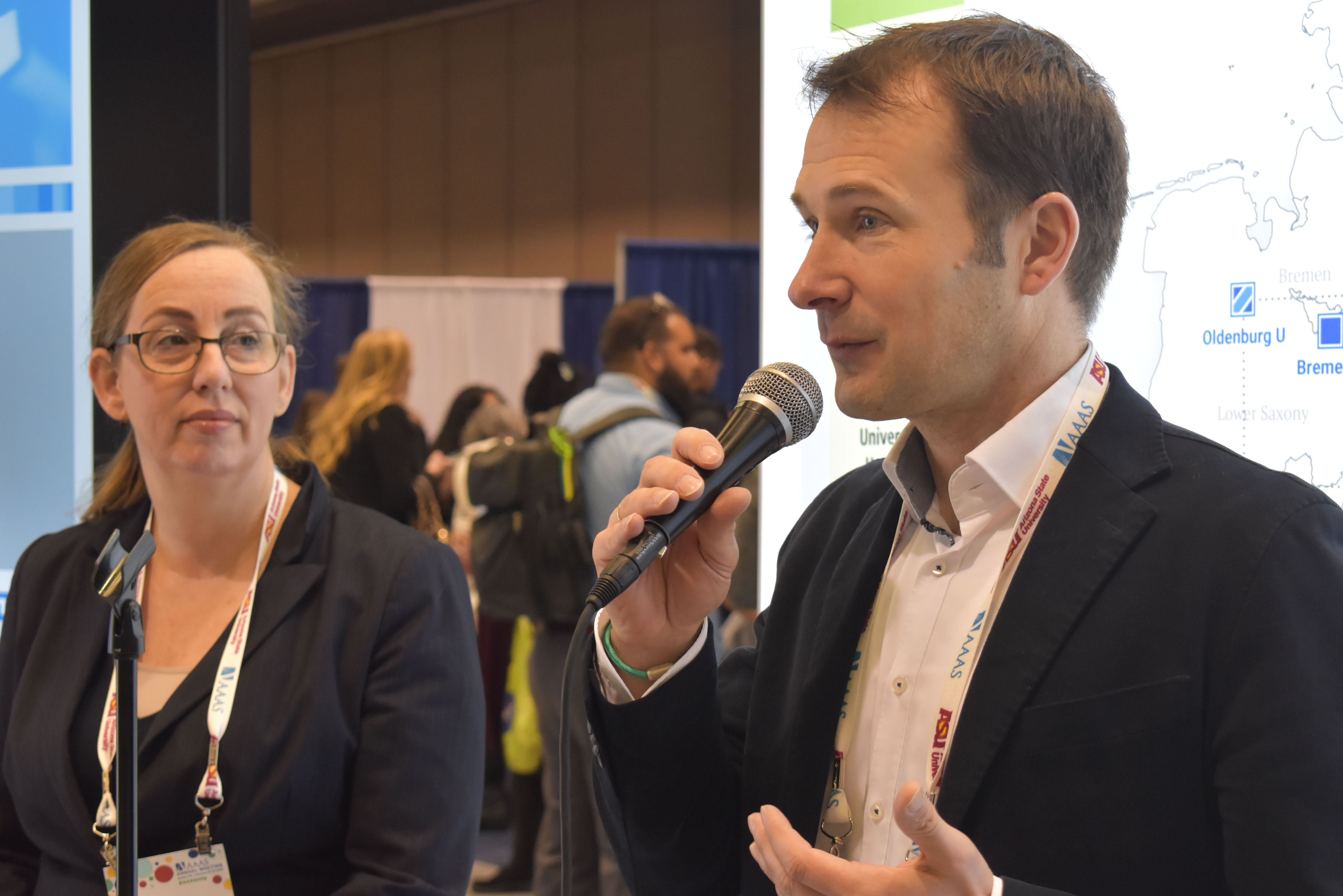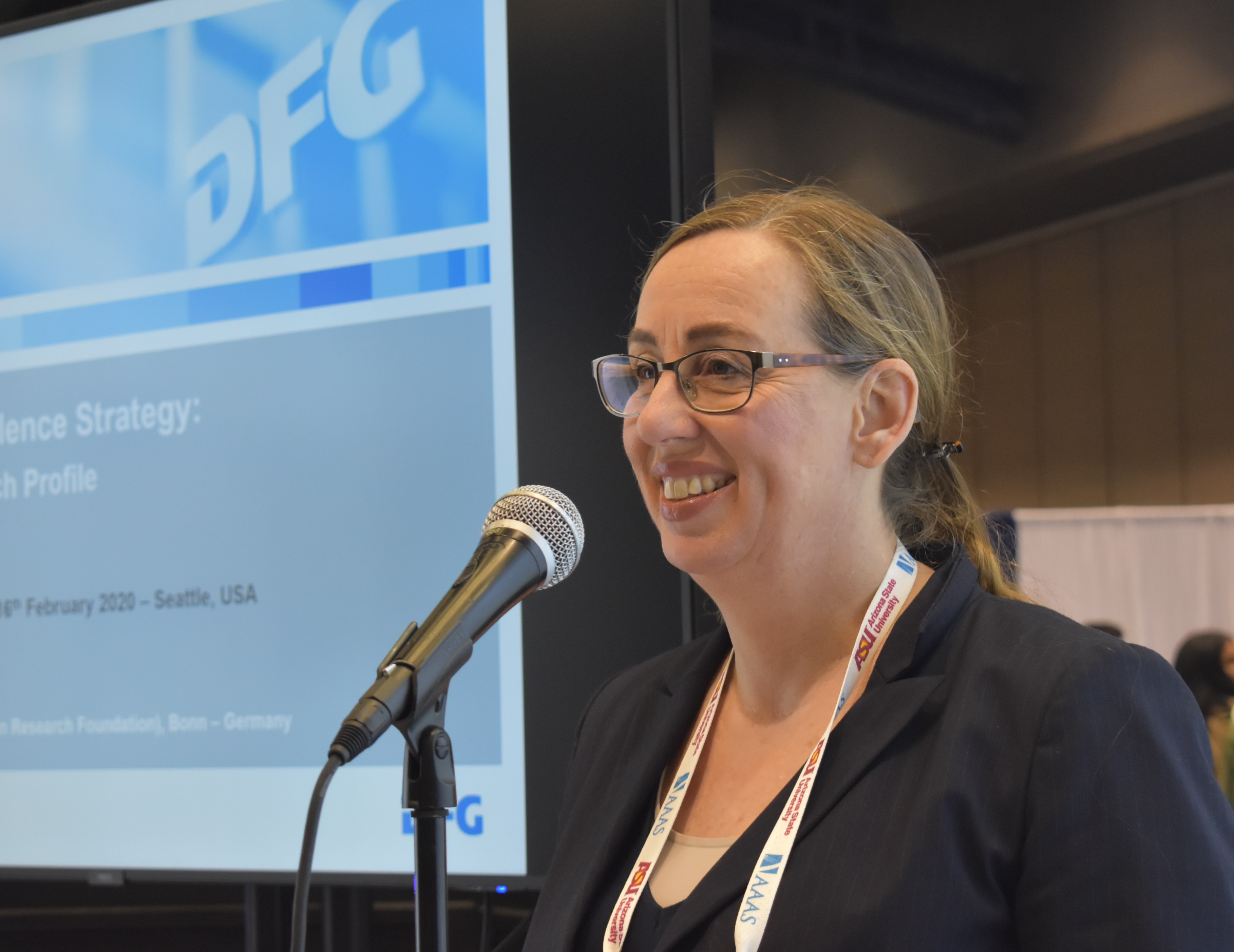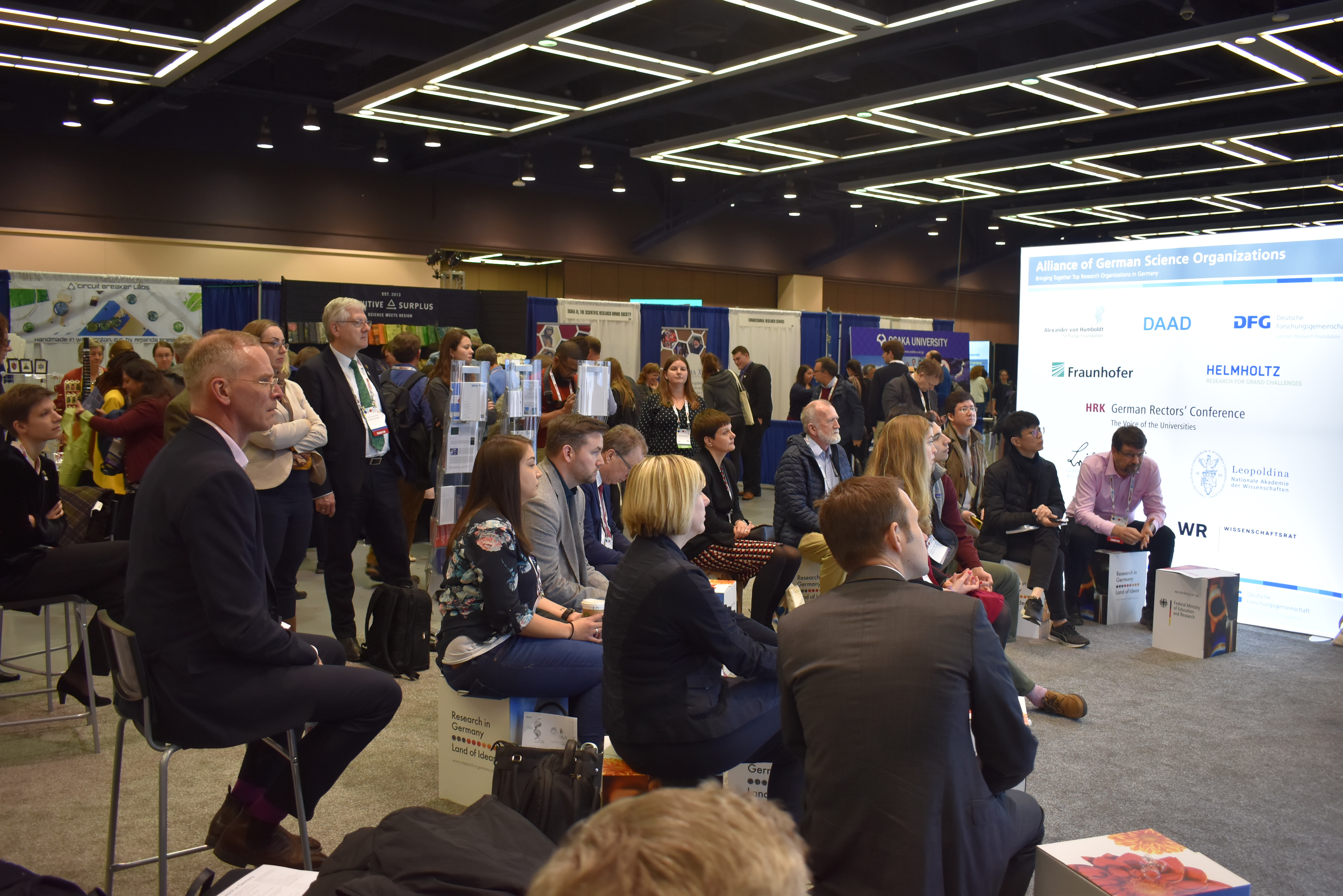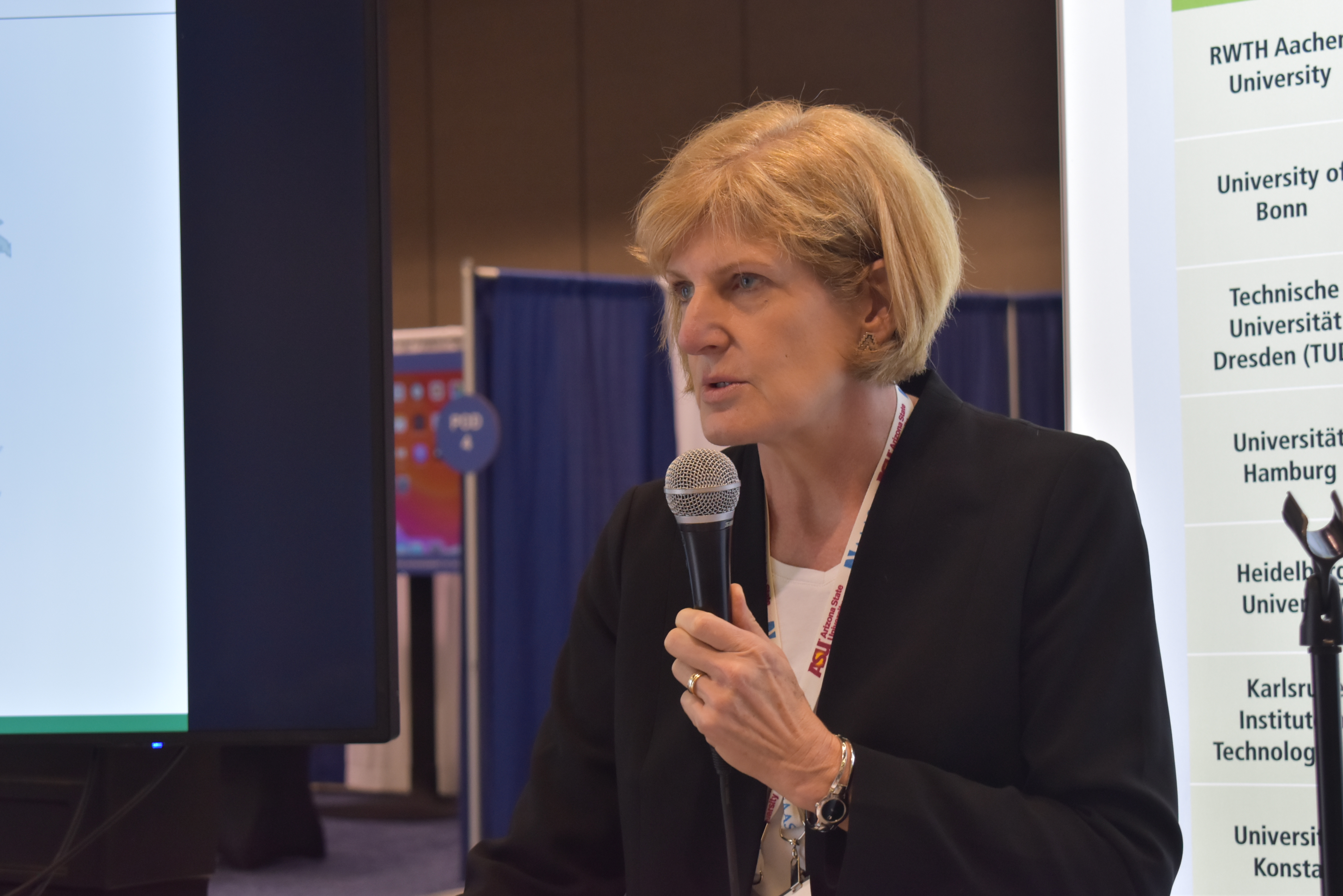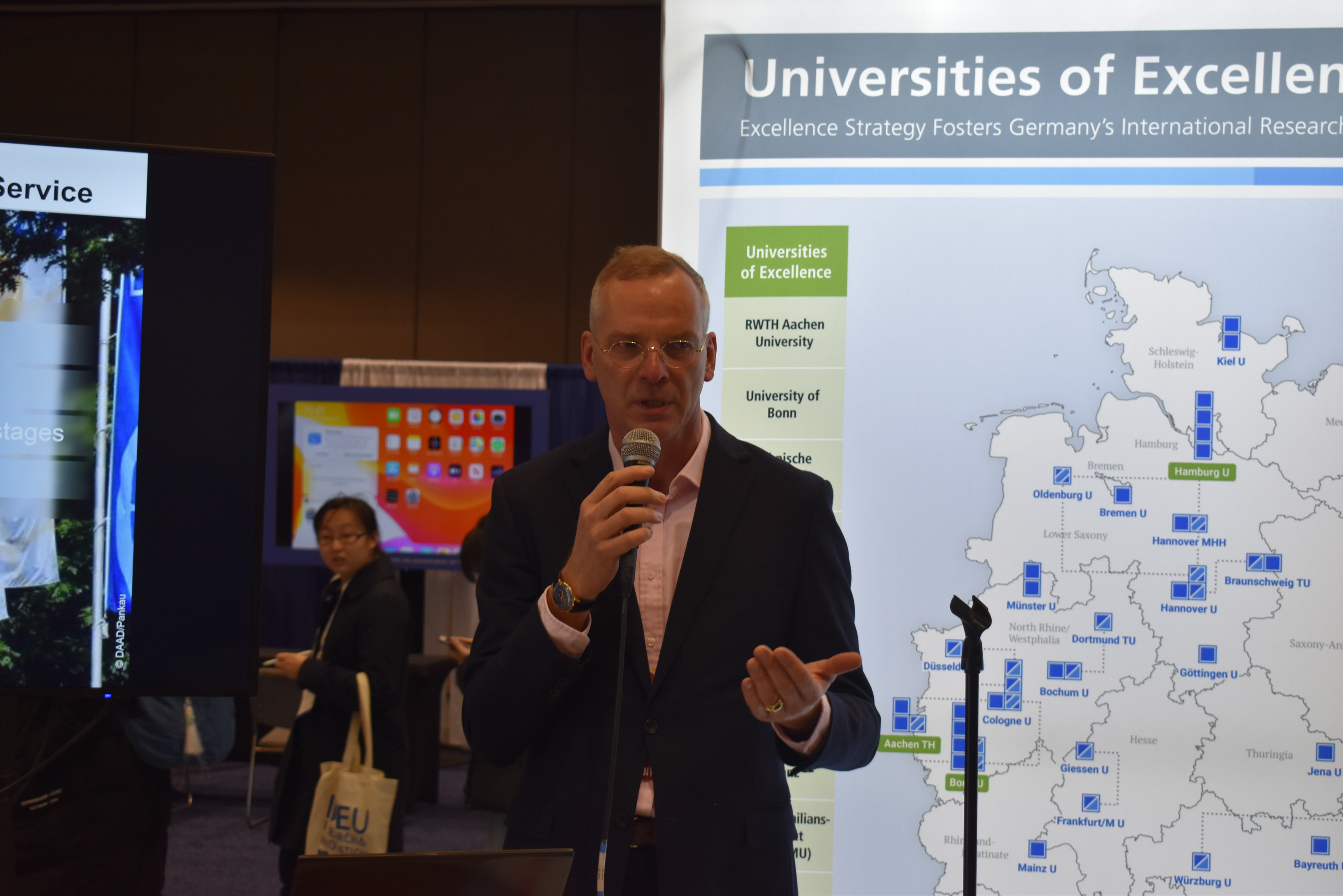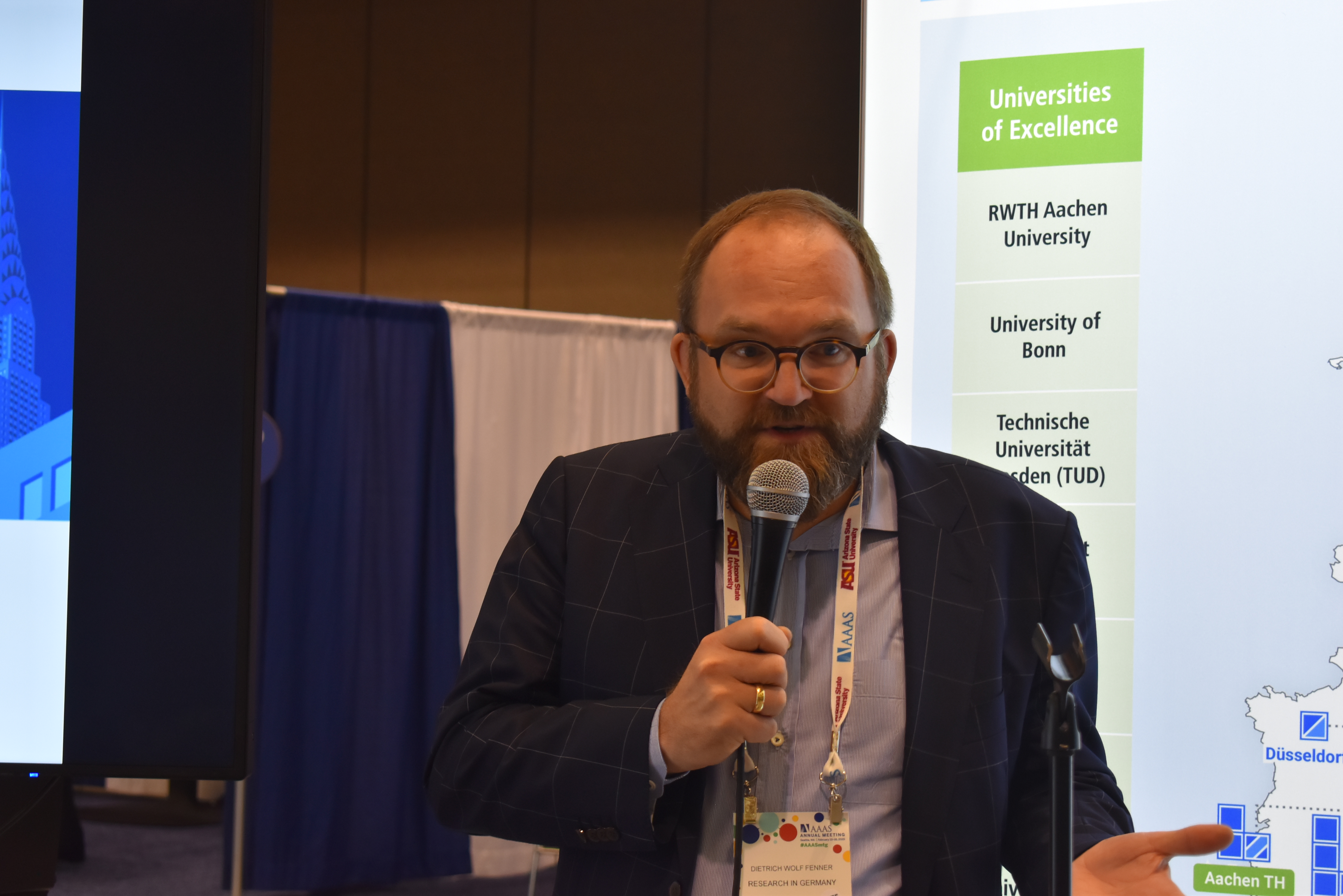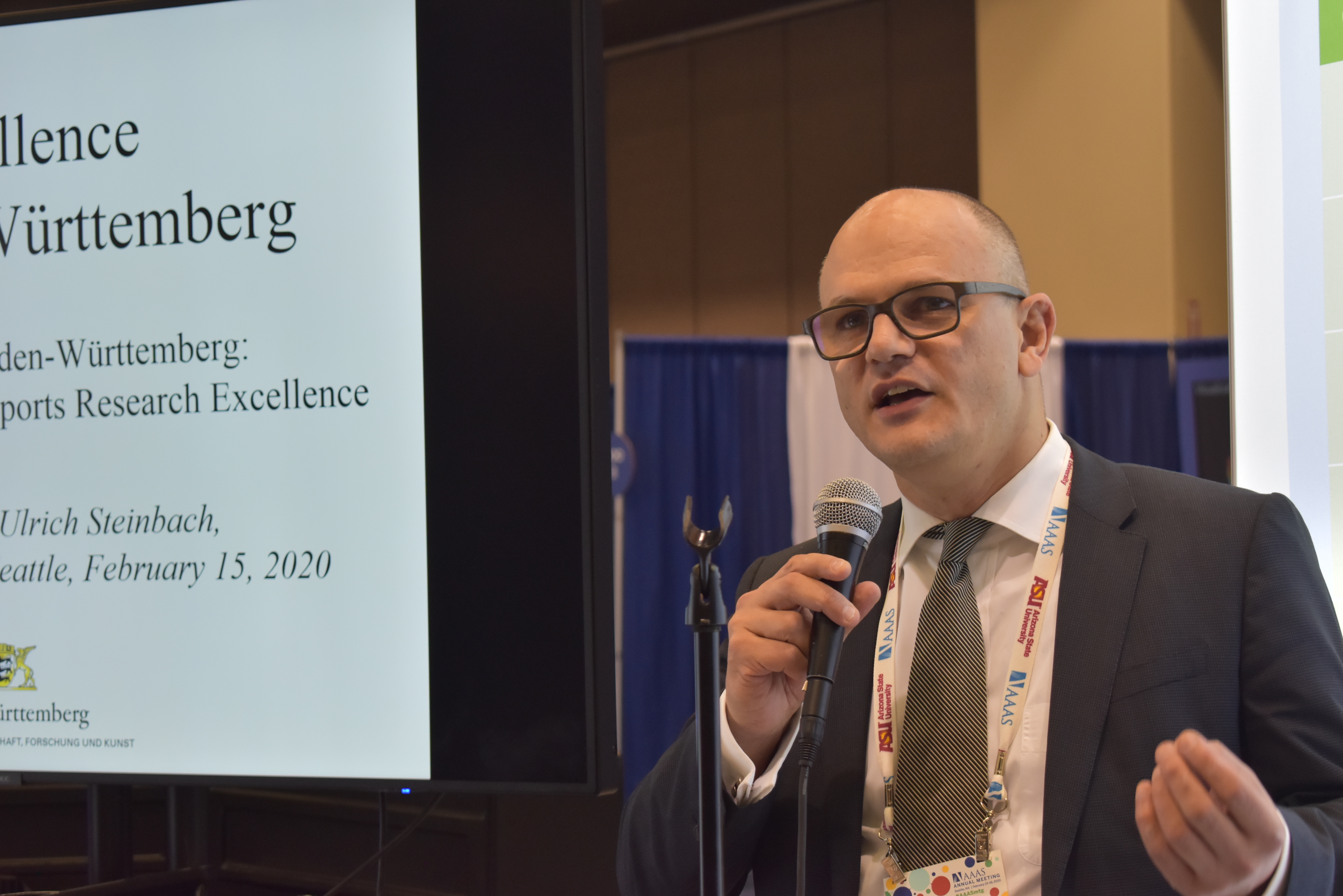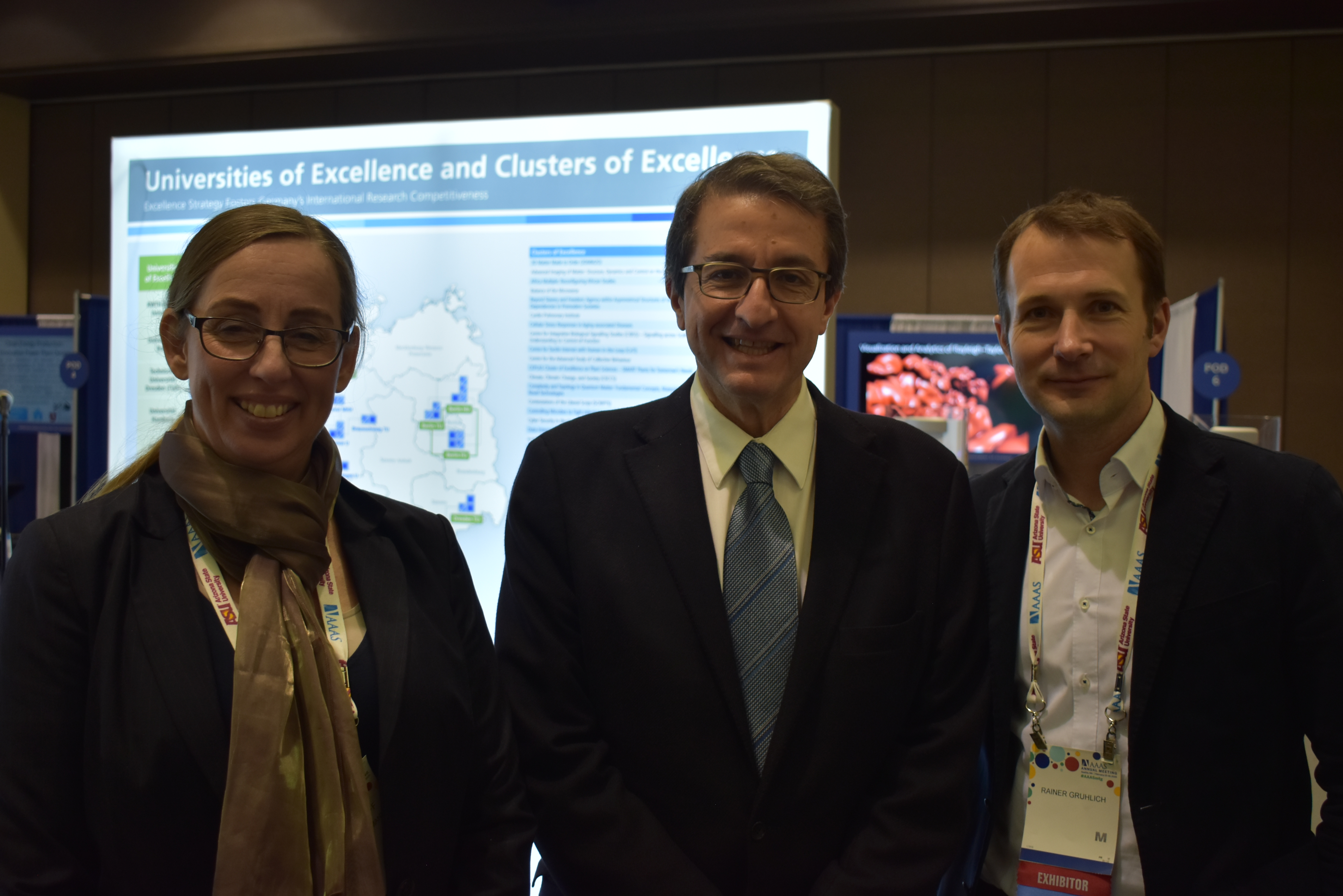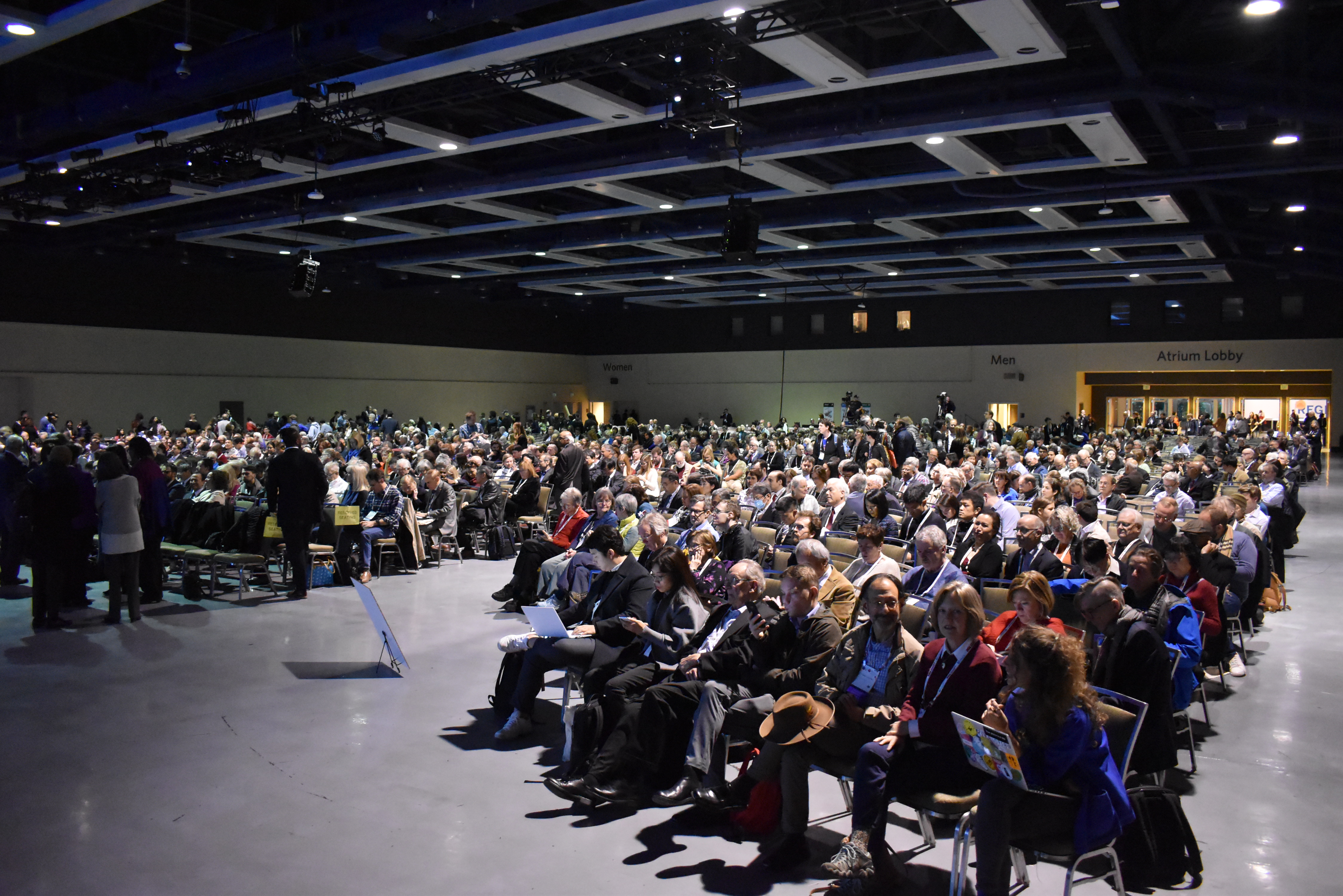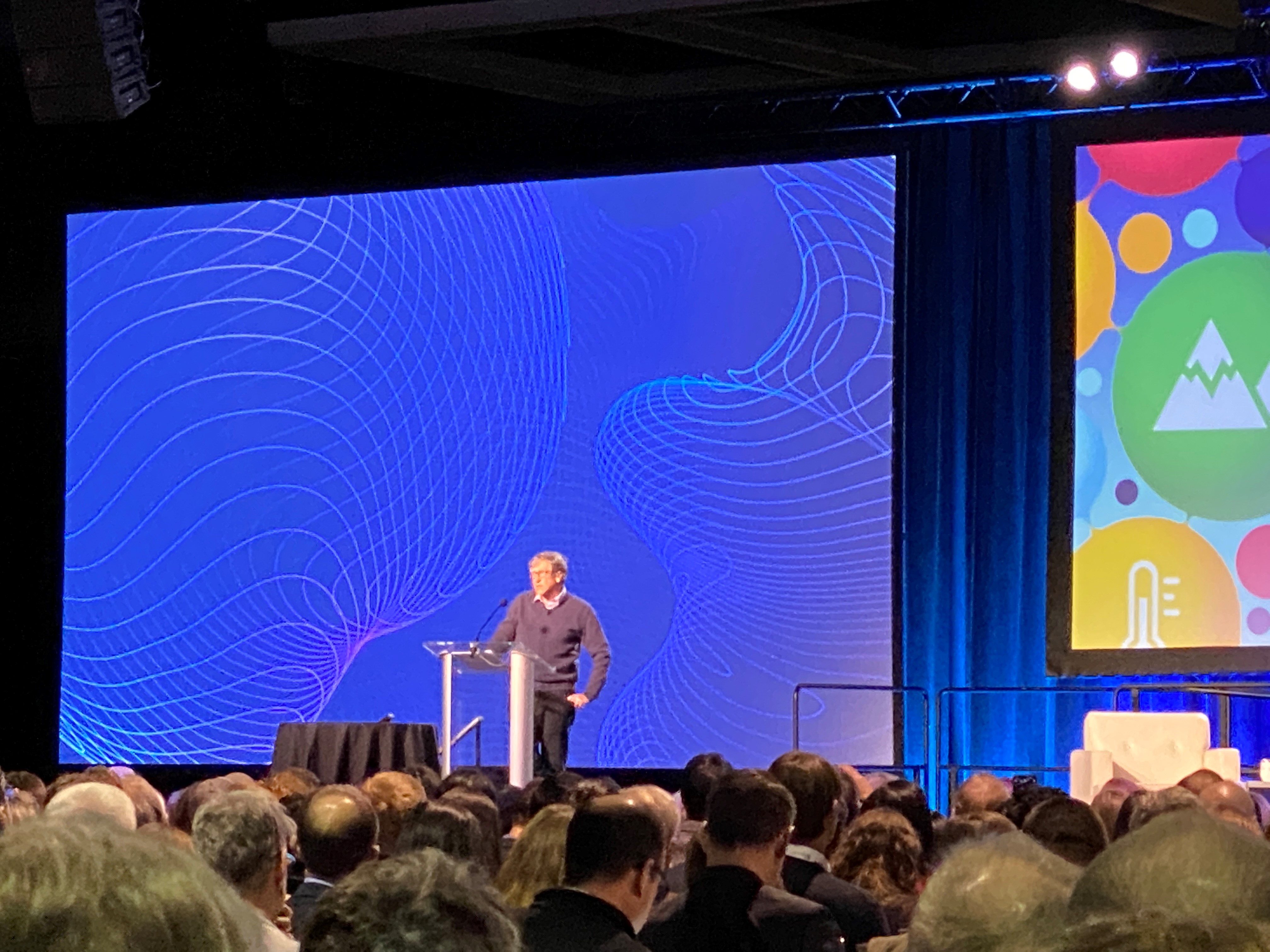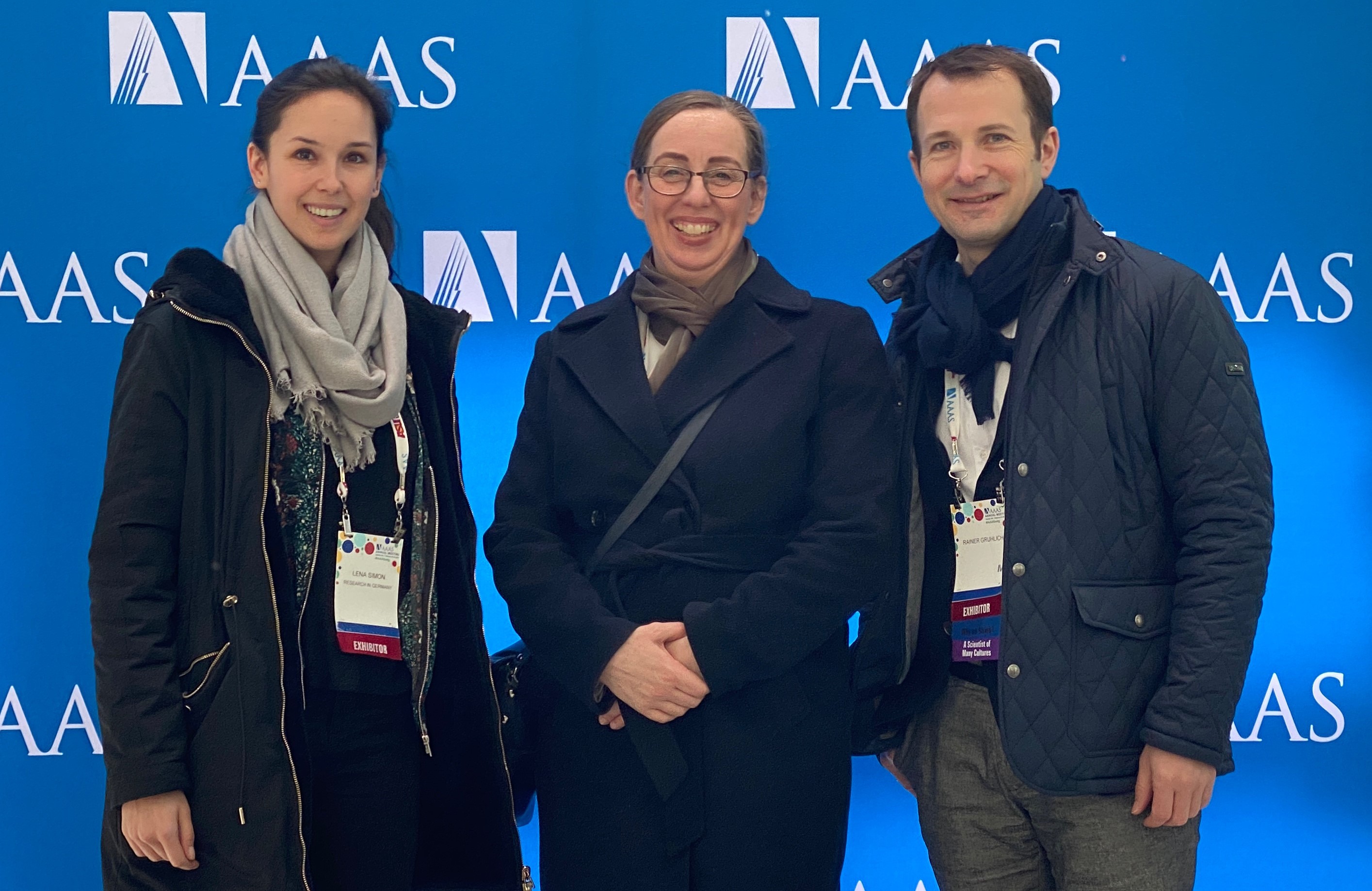DFG Presents Top-Level German Research at AAAS Annual Meeting in Seattle
(02/28/20) The American Association for the Advancement of Science (AAAS) is not only the publisher of Science magazine, but also the world's largest and probably most important organisation for science communication and policy. At the AAAS annual meetings, new research trends are presented to a wide audience of science journalists, issues such as scientific integrity and ethics and, particularly at the moment "Balancing Science with Concerns About National Security", are discussed, and – especially important from the perspective of a funding organisation like the DFG – the arguments in favour of the need for public investment in research and development are continually honed.
DFG and Research in Germany at the AAAS meeting
© DFG
The annual meeting of the American Association for the Advancement of Science (AAAS) was held on 14-16 February in Seattle, Washington with the motto "Envisioning Tomorrow's Earth". In spite of travel restrictions due to the coronavirus outbreak, more than 12,000 visitors attended the event.
The exhibition at the AAAS annual meeting provides an internationally visible platform for presenting trends relevant to research outside the USA. This opportunity was taken advantage of very successfully for the first time at last year's annual meeting in Washington, DC by the partners in the International Research Marketing initiative headed by the German Academic Exchange Service (DAAD). This year, the initiative appeared with the motto "Research in Germany – Land of Ideas", organised primarily by the DFG Office North America and hosted in collaboration with the other initiative partners and with special support from the Ministry of Science, Research and the Arts of Baden-Württemberg. In addition to the four major non-university research institutions, the universities and clusters that successfully attracted funding through the Excellence Strategy were invited to participate. The invitation was accepted by the Max Planck Society, represented by Matthias Haury from the Max Planck Florida Institute for Neuroscience, the Fraunhofer Society, represented by Holly Shores-Alles, the Leibniz Association, represented by Christoph Häuser from the Museum of Natural History, Berlin, the universities of Aachen, Bonn, Dresden, Hamburg, Heidelberg, Konstanz and Tübingen – all Universities of Excellence – and Clusters of Excellence based in Freiburg, Düsseldorf, Cologne and Stuttgart. The 'stage programme' at the booth comprised short, lively presentations by each institution explaining their unique characteristics, with the representatives making themselves available to talk to visitors and answer their questions.
DFG and Research in Germany at the AAAS meeting
© DFG
Three presentations that provided a more extensive amount of information attracted particular attention. At a very well-attended network reception, the state of Baden-Württemberg, represented by Ministerial Director Ulrich Steinbach, presented its outstanding investments in its knowledge-based society. Dr. Ulrike Eickhoff, head of the Department of Coordinated Programmes and Infrastructure at the DFG, explained the objectives and already observable results of the Excellence Strategy and its predecessor programme, the Excellence Initiative. Finally, the cooperation between the funding organisations Alexander von Humboldt Foundation, the DAAD and the DFG was presented as part of the international marketing of Germany as a place of research in a talk by Dr. Cathleen Fisher (American Friends of AvH), Dr. Rainer Gruhlich (DFG Office North America), Dr. Georg Krawietz (DAAD, Bonn) and Wolf Dietrich Fenner (German House for Research and Innovation, New York).
But it wasn't just the line-up of talks and the inviting design that made the German booth a magnet at the AAAS exhibition, there was also coffee and comfortable seating, not to be underestimated in the home town of Starbucks. Visitors to the booth included not only representatives from the neighbouring European Commission booth and other European countries, but also prominent Canadian friends such as the science advisor to Canadian Prime Minister Justin Trudeau, Dr. Mona Nemer, the President of the Natural and Engineering Research Council of Canada, Alejandro Adem, the President of Universities Canada, Paul Davidson, and the Executive Chair of the Research England Council, David Sweeney. Everyone complimented the German booth and what they, the audience and everyone involved saw as a successful presentation of Germany as a place of research.
The partners are already looking forward to next year's event in Phoenix, AZ!
